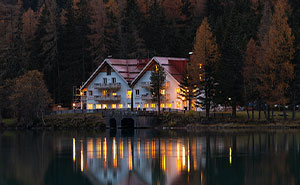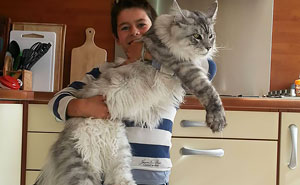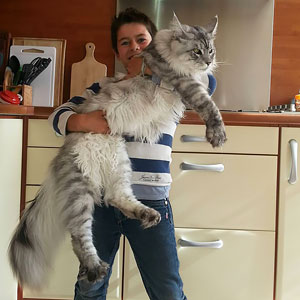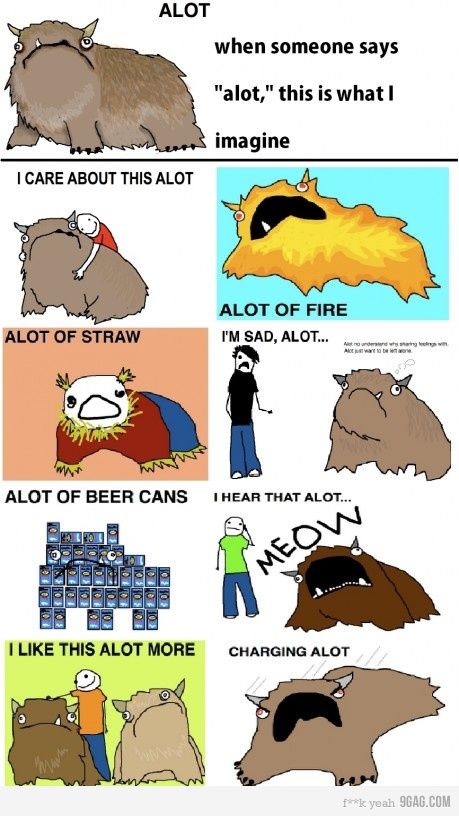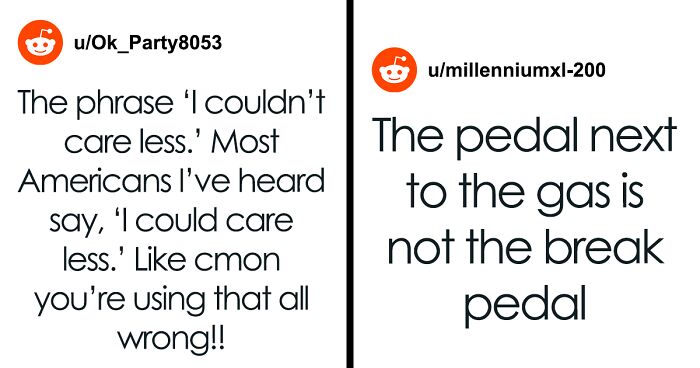
30 Grammar Rules That Many People Fail To Use Correctly, As Pointed Out By Members Of This Online Group
Isn’t it weird that humans learn how to use language to communicate with others without needing to put in that much effort? But if we want to write and read or to perfect it and make our linguistic abilities more sophisticated, we need to actually study the language. Despite starting strong and already being able to talk and understand others in childhood, we spend years learning our languages at school, but in the end, not everyone manages to acquire it completely.
Those who are more receptive to languages often get irritated by the mistakes other people make in spoken or written language. It really shows in a Reddit thread where a person asked “What is something that most people don’t use correctly?” and half of the answers consisted of people naming misused words and grammar errors others make.
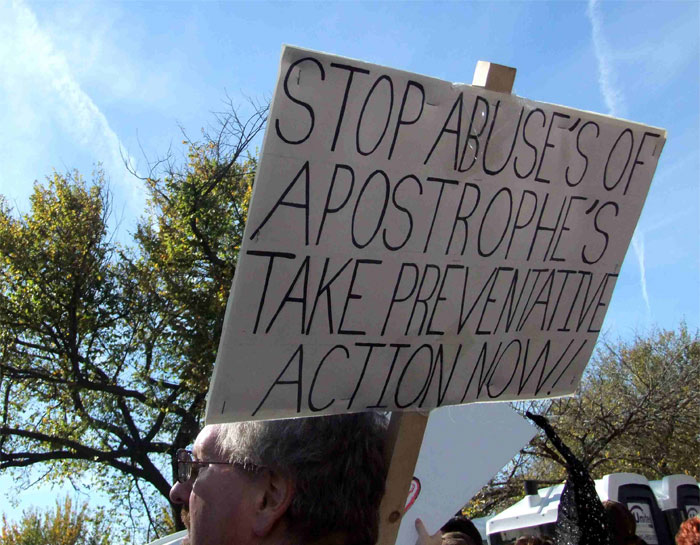
Image credits: Martha Soukup
More info: Reddit
This post may include affiliate links.
The phrase “I couldn’t care less”
Most Americans I’ve heard say, “I could care less”. Like cmon you’re using that all wrong!!
Incredibly: should’ve. I’ve seen a ton of people write “should of” when they mean should’ve (as in should have) and in my opinion that’s worse than confusing “then/than”.
The they're/there/their and to/too/two. It's a pet peeve of mine when people say "This is to boring." In any situation when they use the wrong "to." My mates had taken University-level English classes in highschool yet they still make the "there" or "to" mistakes, and it makes my blood boil.
I didn’t even go to college and I still manage to use the right one every single time.
Less vs. fewer. Less is for uncountable nouns: you have less time, less pain, less work to do. Fewer is for countable nouns: you have fewer apples, fewer cans of soup, fewer distractions. People usually use less when they should use fewer; it rarely happens the other way around. People will say "there are less cars on the road," but they probably won't say "there is fewer traffic." There is a related problem with much vs. many. To be fair, what is countable and uncountable can get complicated, and it's easy to make mistakes (I do it too). You can't have fewer money, you can only have fewer dollars and cents (money, amusingly, is uncountable). You can't have fewer pizza, but you can have fewer pizzas (pluralization of something uncountable makes it countable).
I understand this is technically correct, but not only does this not impede effective communication (you know exactly what they meant) but since language evolves over time, I suspect in the future this distinction will be eliminated and these two words cross-pollenating one another will be considered acceptable, or if nothing else slang.
I'm gonna go get an expresso and excetera.
Your/You’re.
Than/then
"Than" is used when you are comparing two items. Use "then" when you are discussing order in time. Examples: I ate pizza, and "then" took a nap! I ate more pizza "than" wings!
Apostrophes.
Apostrophes are such a pain to explain as they can indicate two things - possession (such as Robert's book or Mary's bicycle) and abbreviation (where letters have been omitted should've, would've, could've, won't). Then you have to try to explain it's to someone. Is it possession or abbreviation? Its is possession and it's is abbreviation. And they go "what?".
It’s always a big joke over here. The Green Grocer’s Apostrophe. Do you want carrot’s? Maybe you’re in the market for parsip’s? A bag of apple’s? It’s a bit of a joke that green grocers always stick in an apostrophe.
Centuries ago… the word “wil” was used for present tense “to wish.” “Wold” was the past tense. But the pronunciation of the two tenses were often conflated. “Wil” was often “wol” or “wo.” The negative form being “wo not.” (The negative form of “wold” was “wold not.”) Eventually, we settled on “will” and “would.” Wouldn’t makes sense. BUT… the negative form of “wo not” stuck around. So, instead of willn’t, we still say won’t.
Load More Replies...Might I suggest the book "Eats Shoots and Leaves" by Lynn Truss, which was also a program on british television.
Of all the one's I think thi's is the one that get's me the mo'st. People who really think you put an apostrophe whenever it end's in 's and even st. Fir'st like so you've just never ever read any book's. It hurt's me so much just sarca'stically u'sing the'se apo'strophe's
Not to mention indicating possession of proper nouns ending with 'S'. JAMES' vs JIM'S. Please tell me it's not JAMES'S. I will freak out.
I prefer the new way where the apostrophe serves in a contraction and a space serves for posession; Mary s bicycle, Mary's asleep now. Much less confusion there.
I get peeved when anyone uses an apostrophe to pluralize or possessively pluralize a family name: Welcome to the Smith’s house. NO NO NO. It should be “Welcome to the Smiths’ house.” Grrrr
And if a name ends with an “s,” don’t forget to add the “es” to make it plural first: Jones = Welcome to the Joneses’ house! ;)
Load More Replies...Yes, especially with dates! Dates aren't possessive people! it's 1990s, not 1990's!
Unless they are possessive. Correct… don’t use an apostrophe for a plural date: We haven’t seen weather like this since the 1990s. However, if a year (or decade) is being used as a proper noun showing possession, then you DO use an apostrophe: 2001’s World Series was won by the Arizona Diamondbacks.
Load More Replies...What's an ancient Greek philosopher got to do with this? He had.... Oh... Never mind, I misread... Just ignore me.
Best used as the degree symbol in text messages when talking about temperature ;)
Apostrophes really confuse people—when I was proofreading documents before the company sent them out, people who have college degrees would get it wrong.
grumpyoldmanBrad said:
Affect/Effect
Daddict replied:
It's so easy.
Affect is a verb. Except when it's a noun.
Effect is a noun. Except when it's a verb.
No idea why people mix these up.
Affect is first, effect is second. Usually in casual conversation, affect will be a verb (her emotions affected the decision), and effect will be a noun (the effect was that she got two dozen donuts instead of one). Affect as a noun means sort of your vibe, as in (his affect was one of confidence), effect as a verb is basically the same as affect, doing something that changes something else, but effect is usually used when making that specific change was the goal (he wanted to effect a change in legislation). Affect as a verb means your action has some consequences in the situation around you, effect as a verb means you are doing something for the specific purpose of making that change. One is unintentional, the other is intentional. Hope that clears things up.
APART
If you participated in something you were “a part” of it. If you are “apart” from something or someone you are deliberately not a part.
"Anyways" the correct word is "anyway". Anyway already denotes any possible way. Adding an S does nothing other than show your ignorance.
Same with saying “payed” instead of “paid”. This one drives me insane the most.
breath, breathe, and breathing. Makes me wanna kill someone more than I already do.
AtomBombBaby42042 said:
Woman/women!
smooshf**kie replied:
Right! But people don't get man/men wrong.
Why is it that people can tell the difference between man/men but not woman/women?
Is this a thing? I can't recall seeing someone mix up woman and women. Is it happening a lot?
Weary vs wary too. I am weary of the misuse of homynyms.
Weary is not a homonym of wary but, for all I know, could be a homynym, whatever that is.
Barley when they mean barely. That one grinds my gears.
"Begs the question"
It doesn't mean to raise the question.
It's a form of circular reasoning where the argument requires the conclusion to be true, rather than the argument supporting the conclusion.
People say: You can't have your cake and eat it too.
The traditional correct phrase is: You can't eat your cake and have it too.
Nowadays the two ways of saying it are pretty much used interchangeably.
Does it make a difference though? Philosophically? In Switzerland we have that saying aswell, slightly different. There’s a bread called weggli, and it often has a chocolate coin(foifer). And usually when you share one get the weggli, the other the coin: thus :you can’t have the weggli and the foifer.
The English language
One time I passed a couple of college students. One was from Iran and the other from Korea. They were speaking in English, but their accents were so strong I could barely understand more than every third word. I was impressed how they could understand each other.
Plurals
Note: this post originally had 32 images. It’s been shortened to the top 30 images based on user votes.
Homonyms are really hard for dyslexic people, it has nothing to do with ignorance. Linguistic discrimination exists, so does literacy privilege. If you can understand what the meaning was just roll with it.
My mum and Gran were both English teachers. I grew up having these grammatical rules emphasised regularly, then I had a severely dyslexic daughter and realised how insane the English language is. Now when I come across the mistakes talked about here I try to remember that English may be a second language, they may be dyslexic or they just had a crappy teacher.
On behalf of my dyslexic family members, thank you. It's a shame that people get judged and slammed for something they are little able to change.
Load More Replies...I mean if I know what the person is trying to say. I'm not going to make them feel bad about spelling errors. It's like being upset because someone breaths the same air as you. People are dyslexic or have a harder time with spelling and writing. If you know good and well what the person means and you still go out of your way to bring up the spelling error. That makes you the b******e. To busy tearing people down for things that don't truly matter. People have just lost all understanding and regard for everything and everyone. Being s h i t t y when there's really no need. Is just sad really. Now if you truly cannot comprehend what someone is saying. You still don't need to point out their errors. You can kindly and respectfully talk to them and say I'm not really understanding but I want to, can you explain more? I guess making people feel less than is okay to some people. But it's really not.
The greatest feature of English is its fluidity and capacity to expand and include. Grammar totalitarianism is tiresome. For example, both Shakespeare and Twain use "between you and I" although it's grammatically "incorrect". If you are a better writer than either of these authors, fine. Otherwise, STFU, and enjoy the beautiful flexibility of the English language. Did you get your point across? Were you consistent? That's all you need to do. That said, putting the $ after a number is an indicator of moral decay. :-)
Definitely v defiantly Whenever anyone says they are defiantly going to do something, I imagine them with a determined jutted chin as they face their battle.
I'm hoping that's just a very common typo that auto correct misses because it still nominally makes sense. You see quiet and quite get mixed up in a similar way.
Load More Replies..."Nucular" instead of nuclear. The worst part is when a "scientist" says it in a movie, which spoils everything for me, because it just hits you in the face that he's an actor who misread it from the script.
It's unforgivable that politicians who ACTUALLY have their finger on the button cannot correctly say the word nuclear. It could be the last hoorah, say it right!
Load More Replies...I'm generally ok with grammar, except one situation: Affect vs Effect. I have a sense of which to use normally, or for some sentences, but at other times I'm totally unsure which is correct. So I just generally avoid it, and that seems to be pretty effective 😉
As an English teacher, I can confidently say that English doesn't follow its own rules haha. The number of times students ask me why one word doesn't follow the rules of phonetics established by previous words we've learned is a lot of times haha.
Faze vs phase. "The earthquake didn't faze him." "Petrol and diesel fuels are being phased out."
Yes! Although I've seen "phase" being incorrectly used instead of faze in academic journals and broadsheet newspapers to the extent that I think faze is going to disappear, as people just don't seem to know it any more. I think that so many people think the word is always spelt "phase" that we're almost at the point where people assume you're dumb if you (correctly) write faze.
Load More Replies...English (my native tongue) is sort of messed up even when used perfectly.
It pisses me off when people say that grammar isn't important. It is important, in that if you lose too many grammar rules, you also lose a lot of the ability to express precise ideas. Then meaning has to be guessed at, or becomes completely subjective.
How can you not have "to lie" vs "to lay"? In the USA, whether they mean the intransitive "to lie" (like to lie down) and the transitive "to lay" (I lay the phone on the table), they always use "to lay", like "he lays down". No! It doesn't help that the past and perfect tenses of the two verbs have a lot of overlap, but my goodness, learn to speak English properly.
All of these resonate with me, to be frank. I didn't see it mentioned here, so I have to say that one thing guaranteed to drive me to distraction is seeing people use apostrophes for almost every word that ends with an "S", especially plurals. Examples are things like need's, want's, boat's, and computer's.
It's particularly prevalent when the noun ends in a vowel. Sofa's, polo's, tortilla's, ski's. Worst of all is when people insert the apostrophe into a name, like _It's Jame's birthday_ and _ They're Thoma's shoes_.
Load More Replies...In Dutch; "sfeer" and "zweer" which are phonetically similar but the former addresses the ambiance in a room and the latter addresses a pestering sore :')
The first is for nice people, the latter is a nasty person ;)
Load More Replies..."Very unique." The word "unique" is already a superlative; you cannot modify it to make it more of what it already is. Same for "very best." "Best" is it; there's nothing better than "best."
But you've got to forgive System of a Down's "the most loneliest day of my life" lyric, imo anyway! Great songs get a free pass ^-^
Load More Replies...I've noticed more and more people pronouncing library as 'libarry'. Drives me right up the wall.
Reminds me of the fantastic poem a The Chaos by Charivarius. I challenge you to say it out loud 😄 https://g.co/kgs/AZFfBM
I confess to being a 'grammar snob', yet admire the flexibility of the language to maintain its intended meaning no matter how mangled the use. That said, perhaps the error that irks me the most is the incorrect use of general quantities: an amount of people...no, it's a number, an amount of milk...no, it's a volume. Argh!
Did and done….. I did it NOT I done it Decimate. This means to reduce by 10%
Well, yes and no. At one time, 'decimate' did mean to reduce by 10%. Specifically to reduce 10% by the drawing of random lots. But much has changed since Roman times.
Load More Replies..."Awe" and "Aw" STOP IT! Awe is for infinite space. Aw is the sound you make when you see something adorable.
I allways get so bothered when i hear a english native speaker say ”excetare”. Its no x in there, etcetera... even i that dont have english as my first language knows this, as you can see from my grammar
When people say "defiantly" because they are too lazy to learn how to spell "definitely"
They aren’t too lazy. They just haven’t been taught correctly. Geez.
Load More Replies...The one that drives me wild is "try and" as in "I am going to try and get this done by Friday." "Try and" is gibberish. It should be "I am going to try to get this done by Friday." I am afraid that the hideous construct "try and" is now passed too deeply into common usage to ever be rooted out. I get the giggles with verbs like "administrate," which was derived from "administration" which was the noun associated with the original verb "administer."
Also, the Americanism: I need to go get dressed; I must go do some laundry. To my ear, "go and get" "go and do" sounds far less jarring.
Load More Replies...I’d like to take a poll: “If that’s what you think…” is it “you’ve got another THING coming” or “you’ve got another THINK coming” ?
Think... What Joey said. It is telling the person to think again because the other person considers them wrong. I can understand where this one comes from though. People often cut off the end of their words and don't always articulate well and so people mishear. It is similar to people who say somethink instead off something.
Load More Replies...The use of "I" instead of "me" has become commonly accepted, but I find it jarring. What's so difficult? Example: Joan took Larry, Jerry and me to the nature center. Just remove the other individuals in the list and "I" doesn't work! Marilyn Monroe used "A girl like I," to great effect in Some Like It Hot to show she was trying to appear intelligent.
It's not grammar errors as mentioned in the second paragraph, but grammatical errors.
I know people who say specifically as pacifically 😑 and then there’s pronouncing th like f e.g. free but they mean three. Although I think a lot of it has to do with where someone comes from…
The th vs f sound can also be a speech defect similar to a lisp.
Load More Replies...It doesn't necessarily bug me, but I hear a lot of people say "any more" in the positive. "We don't do that any more," is fine. "We do that any more," is incorrect. The same applies for "yet". This is more common in the Pennsylvania Dutch area. They say things like, "Are you still working on your plate, yet?"
“A lot” is two words. Principle/Principal as in “Mr. Smith is the school principle.” Aaarrrgghh!!
I seen/we was. This for me is one of the cases that illustrates "language is evolving" is a lame argument. If language is truly evolving, then we should all be ok with hearing "we was a-going down to the store when we seen..." You could be a Nobel scientist, but if you tell me you "seen" something, I will not think quite so highly of you. I have always wondered if people who say "I seen" or "we was" just think the rest of the English speakers are wrong when they say "I saw" and "we were".
I am surprised no one brought up the common use of "Court Marshall" to mean "Court Martial". The latter is the correct one. "Martial" as in "having military bearing", as in coming from Mars, the god of war. Not "Marshall", as in poor general George C. Marshall. I read military thrillers that have that mistake repeated multiple times and I just cannot finish reading those books. The writers claim to be ex-military, but I sure hope no veteran would make that mistake.
3rd wheel. The original phrase is 5th wheel. The reason is that a 5th wheel serves no purpose, and add nothing to a cart. So saying 3rd wheel doesn't make any sense, ad a 3rd wheel, as opposed to a 5th, DO have a purpose.
Whoa and woah! This annoys me endlessly. Woah is somewhat new, but is only a variation of whoa from what I've found. And not in dictionaries (yet.) whoa is woh/hwoh while woah makes me think woh-uh.
I cannot stand when people mix up "our" and "are". They aren't even close in meaning but people mix them up all the time
I once had a girlfriend that could never use "loose" and 'lose" properly.
perscription v prescription. I have to practice in my head before I ask for mine!
I'm just happy when I get a text that uses complete words and sentences.
Also, I have noticed a trend (which I suppose stems from overcorrecting) to use 'I' where 'me' or 'mine' would be correct, most noticeably atrocious in monstrosities such as "My boyfriend's and I's car." Ffs. Honestly. Gives me a minor aneurysm every time I see it.
I find it funny when people mistake lexical or semantical mistakes for grammatical mistakes. If you're going to nitpick, at least nitpick correctly.
So many of the complaints on here aren't even legitimate. There sure are a lot of grammar nazis who don't actually know how English grammar works. 🤦🏼♀️
Load More Replies...The word ain’t is being used more and more by intelligent people all over television news reporting. WHY???????
I'm surprised there was no mention of the double negation... But let me make you read this "pearl": 'Ain't nothing I ain't never seen before' https://fr.sports.yahoo.com/blogs/nba-ball-dont-lie/tony-allen-on-stephen-curry---ain-t-nothing-i--ain-t-never-seen-before-204929804.html?pt=tAD1SCT8P7?date10110614
"All of the sudden." Makes me want to scream. Its "a sudden". One sudden.
Quality, lots of people use it to mean something is good. It' winds me up because it's either good quality or poor quality, it can't just be quality. Here endeth my rant.
For me it's much vs many. Many is something you can count, like "I have so many pencils" and much is something you can't exactly count. "There is so much water in that lake". I don't think that "rule" applies every time, but it still bothers me when someone says something like "There's so much people in this room"
Discrete/discreet. "Reference" as a verb. "Impact" as a verb. ... In short, to quote Calvin & Hobbes, "Verbing weirds language."
Ensure vs insure. One is insurance and one is to guarantee. Even had a boss go look it up in a letter I transcribed for him to mail out! Look it up people, and use it correctly.
Well, got to be honest that is one that I really wish autocorrect would get in hand! I type 'noone' in the hopeful expectation that autocorrect will shove in the hyphen for me and it never does! Really rather annoying to have to do it myself.
Load More Replies...I laugh at how people think only their regional pronunciation is correct.
I love regional pronunciation and have no problem with any of them but, let's face it, there is the dictionary with it's annoying insistence on how words are pronounced which often flies in the face of accents.
Load More Replies...The American habit of doing dative and genative cases! "Write TO me". "A pair OF socks". I have a massive brain fart whenever that's wrong
Homonyms are really hard for dyslexic people, it has nothing to do with ignorance. Linguistic discrimination exists, so does literacy privilege. If you can understand what the meaning was just roll with it.
My mum and Gran were both English teachers. I grew up having these grammatical rules emphasised regularly, then I had a severely dyslexic daughter and realised how insane the English language is. Now when I come across the mistakes talked about here I try to remember that English may be a second language, they may be dyslexic or they just had a crappy teacher.
On behalf of my dyslexic family members, thank you. It's a shame that people get judged and slammed for something they are little able to change.
Load More Replies...I mean if I know what the person is trying to say. I'm not going to make them feel bad about spelling errors. It's like being upset because someone breaths the same air as you. People are dyslexic or have a harder time with spelling and writing. If you know good and well what the person means and you still go out of your way to bring up the spelling error. That makes you the b******e. To busy tearing people down for things that don't truly matter. People have just lost all understanding and regard for everything and everyone. Being s h i t t y when there's really no need. Is just sad really. Now if you truly cannot comprehend what someone is saying. You still don't need to point out their errors. You can kindly and respectfully talk to them and say I'm not really understanding but I want to, can you explain more? I guess making people feel less than is okay to some people. But it's really not.
The greatest feature of English is its fluidity and capacity to expand and include. Grammar totalitarianism is tiresome. For example, both Shakespeare and Twain use "between you and I" although it's grammatically "incorrect". If you are a better writer than either of these authors, fine. Otherwise, STFU, and enjoy the beautiful flexibility of the English language. Did you get your point across? Were you consistent? That's all you need to do. That said, putting the $ after a number is an indicator of moral decay. :-)
Definitely v defiantly Whenever anyone says they are defiantly going to do something, I imagine them with a determined jutted chin as they face their battle.
I'm hoping that's just a very common typo that auto correct misses because it still nominally makes sense. You see quiet and quite get mixed up in a similar way.
Load More Replies..."Nucular" instead of nuclear. The worst part is when a "scientist" says it in a movie, which spoils everything for me, because it just hits you in the face that he's an actor who misread it from the script.
It's unforgivable that politicians who ACTUALLY have their finger on the button cannot correctly say the word nuclear. It could be the last hoorah, say it right!
Load More Replies...I'm generally ok with grammar, except one situation: Affect vs Effect. I have a sense of which to use normally, or for some sentences, but at other times I'm totally unsure which is correct. So I just generally avoid it, and that seems to be pretty effective 😉
As an English teacher, I can confidently say that English doesn't follow its own rules haha. The number of times students ask me why one word doesn't follow the rules of phonetics established by previous words we've learned is a lot of times haha.
Faze vs phase. "The earthquake didn't faze him." "Petrol and diesel fuels are being phased out."
Yes! Although I've seen "phase" being incorrectly used instead of faze in academic journals and broadsheet newspapers to the extent that I think faze is going to disappear, as people just don't seem to know it any more. I think that so many people think the word is always spelt "phase" that we're almost at the point where people assume you're dumb if you (correctly) write faze.
Load More Replies...English (my native tongue) is sort of messed up even when used perfectly.
It pisses me off when people say that grammar isn't important. It is important, in that if you lose too many grammar rules, you also lose a lot of the ability to express precise ideas. Then meaning has to be guessed at, or becomes completely subjective.
How can you not have "to lie" vs "to lay"? In the USA, whether they mean the intransitive "to lie" (like to lie down) and the transitive "to lay" (I lay the phone on the table), they always use "to lay", like "he lays down". No! It doesn't help that the past and perfect tenses of the two verbs have a lot of overlap, but my goodness, learn to speak English properly.
All of these resonate with me, to be frank. I didn't see it mentioned here, so I have to say that one thing guaranteed to drive me to distraction is seeing people use apostrophes for almost every word that ends with an "S", especially plurals. Examples are things like need's, want's, boat's, and computer's.
It's particularly prevalent when the noun ends in a vowel. Sofa's, polo's, tortilla's, ski's. Worst of all is when people insert the apostrophe into a name, like _It's Jame's birthday_ and _ They're Thoma's shoes_.
Load More Replies...In Dutch; "sfeer" and "zweer" which are phonetically similar but the former addresses the ambiance in a room and the latter addresses a pestering sore :')
The first is for nice people, the latter is a nasty person ;)
Load More Replies..."Very unique." The word "unique" is already a superlative; you cannot modify it to make it more of what it already is. Same for "very best." "Best" is it; there's nothing better than "best."
But you've got to forgive System of a Down's "the most loneliest day of my life" lyric, imo anyway! Great songs get a free pass ^-^
Load More Replies...I've noticed more and more people pronouncing library as 'libarry'. Drives me right up the wall.
Reminds me of the fantastic poem a The Chaos by Charivarius. I challenge you to say it out loud 😄 https://g.co/kgs/AZFfBM
I confess to being a 'grammar snob', yet admire the flexibility of the language to maintain its intended meaning no matter how mangled the use. That said, perhaps the error that irks me the most is the incorrect use of general quantities: an amount of people...no, it's a number, an amount of milk...no, it's a volume. Argh!
Did and done….. I did it NOT I done it Decimate. This means to reduce by 10%
Well, yes and no. At one time, 'decimate' did mean to reduce by 10%. Specifically to reduce 10% by the drawing of random lots. But much has changed since Roman times.
Load More Replies..."Awe" and "Aw" STOP IT! Awe is for infinite space. Aw is the sound you make when you see something adorable.
I allways get so bothered when i hear a english native speaker say ”excetare”. Its no x in there, etcetera... even i that dont have english as my first language knows this, as you can see from my grammar
When people say "defiantly" because they are too lazy to learn how to spell "definitely"
They aren’t too lazy. They just haven’t been taught correctly. Geez.
Load More Replies...The one that drives me wild is "try and" as in "I am going to try and get this done by Friday." "Try and" is gibberish. It should be "I am going to try to get this done by Friday." I am afraid that the hideous construct "try and" is now passed too deeply into common usage to ever be rooted out. I get the giggles with verbs like "administrate," which was derived from "administration" which was the noun associated with the original verb "administer."
Also, the Americanism: I need to go get dressed; I must go do some laundry. To my ear, "go and get" "go and do" sounds far less jarring.
Load More Replies...I’d like to take a poll: “If that’s what you think…” is it “you’ve got another THING coming” or “you’ve got another THINK coming” ?
Think... What Joey said. It is telling the person to think again because the other person considers them wrong. I can understand where this one comes from though. People often cut off the end of their words and don't always articulate well and so people mishear. It is similar to people who say somethink instead off something.
Load More Replies...The use of "I" instead of "me" has become commonly accepted, but I find it jarring. What's so difficult? Example: Joan took Larry, Jerry and me to the nature center. Just remove the other individuals in the list and "I" doesn't work! Marilyn Monroe used "A girl like I," to great effect in Some Like It Hot to show she was trying to appear intelligent.
It's not grammar errors as mentioned in the second paragraph, but grammatical errors.
I know people who say specifically as pacifically 😑 and then there’s pronouncing th like f e.g. free but they mean three. Although I think a lot of it has to do with where someone comes from…
The th vs f sound can also be a speech defect similar to a lisp.
Load More Replies...It doesn't necessarily bug me, but I hear a lot of people say "any more" in the positive. "We don't do that any more," is fine. "We do that any more," is incorrect. The same applies for "yet". This is more common in the Pennsylvania Dutch area. They say things like, "Are you still working on your plate, yet?"
“A lot” is two words. Principle/Principal as in “Mr. Smith is the school principle.” Aaarrrgghh!!
I seen/we was. This for me is one of the cases that illustrates "language is evolving" is a lame argument. If language is truly evolving, then we should all be ok with hearing "we was a-going down to the store when we seen..." You could be a Nobel scientist, but if you tell me you "seen" something, I will not think quite so highly of you. I have always wondered if people who say "I seen" or "we was" just think the rest of the English speakers are wrong when they say "I saw" and "we were".
I am surprised no one brought up the common use of "Court Marshall" to mean "Court Martial". The latter is the correct one. "Martial" as in "having military bearing", as in coming from Mars, the god of war. Not "Marshall", as in poor general George C. Marshall. I read military thrillers that have that mistake repeated multiple times and I just cannot finish reading those books. The writers claim to be ex-military, but I sure hope no veteran would make that mistake.
3rd wheel. The original phrase is 5th wheel. The reason is that a 5th wheel serves no purpose, and add nothing to a cart. So saying 3rd wheel doesn't make any sense, ad a 3rd wheel, as opposed to a 5th, DO have a purpose.
Whoa and woah! This annoys me endlessly. Woah is somewhat new, but is only a variation of whoa from what I've found. And not in dictionaries (yet.) whoa is woh/hwoh while woah makes me think woh-uh.
I cannot stand when people mix up "our" and "are". They aren't even close in meaning but people mix them up all the time
I once had a girlfriend that could never use "loose" and 'lose" properly.
perscription v prescription. I have to practice in my head before I ask for mine!
I'm just happy when I get a text that uses complete words and sentences.
Also, I have noticed a trend (which I suppose stems from overcorrecting) to use 'I' where 'me' or 'mine' would be correct, most noticeably atrocious in monstrosities such as "My boyfriend's and I's car." Ffs. Honestly. Gives me a minor aneurysm every time I see it.
I find it funny when people mistake lexical or semantical mistakes for grammatical mistakes. If you're going to nitpick, at least nitpick correctly.
So many of the complaints on here aren't even legitimate. There sure are a lot of grammar nazis who don't actually know how English grammar works. 🤦🏼♀️
Load More Replies...The word ain’t is being used more and more by intelligent people all over television news reporting. WHY???????
I'm surprised there was no mention of the double negation... But let me make you read this "pearl": 'Ain't nothing I ain't never seen before' https://fr.sports.yahoo.com/blogs/nba-ball-dont-lie/tony-allen-on-stephen-curry---ain-t-nothing-i--ain-t-never-seen-before-204929804.html?pt=tAD1SCT8P7?date10110614
"All of the sudden." Makes me want to scream. Its "a sudden". One sudden.
Quality, lots of people use it to mean something is good. It' winds me up because it's either good quality or poor quality, it can't just be quality. Here endeth my rant.
For me it's much vs many. Many is something you can count, like "I have so many pencils" and much is something you can't exactly count. "There is so much water in that lake". I don't think that "rule" applies every time, but it still bothers me when someone says something like "There's so much people in this room"
Discrete/discreet. "Reference" as a verb. "Impact" as a verb. ... In short, to quote Calvin & Hobbes, "Verbing weirds language."
Ensure vs insure. One is insurance and one is to guarantee. Even had a boss go look it up in a letter I transcribed for him to mail out! Look it up people, and use it correctly.
Well, got to be honest that is one that I really wish autocorrect would get in hand! I type 'noone' in the hopeful expectation that autocorrect will shove in the hyphen for me and it never does! Really rather annoying to have to do it myself.
Load More Replies...I laugh at how people think only their regional pronunciation is correct.
I love regional pronunciation and have no problem with any of them but, let's face it, there is the dictionary with it's annoying insistence on how words are pronounced which often flies in the face of accents.
Load More Replies...The American habit of doing dative and genative cases! "Write TO me". "A pair OF socks". I have a massive brain fart whenever that's wrong



